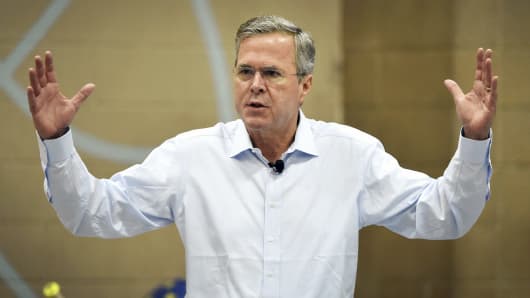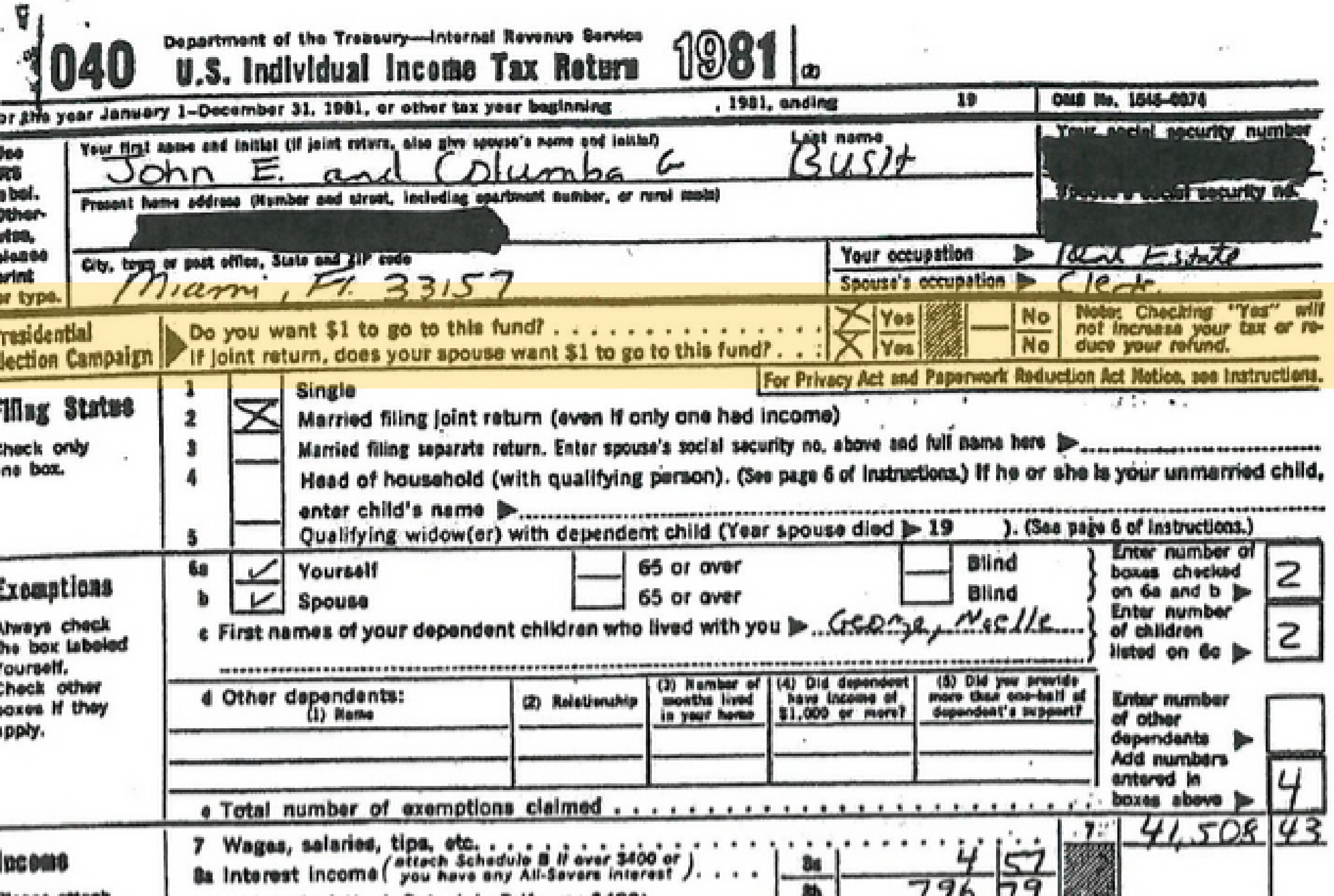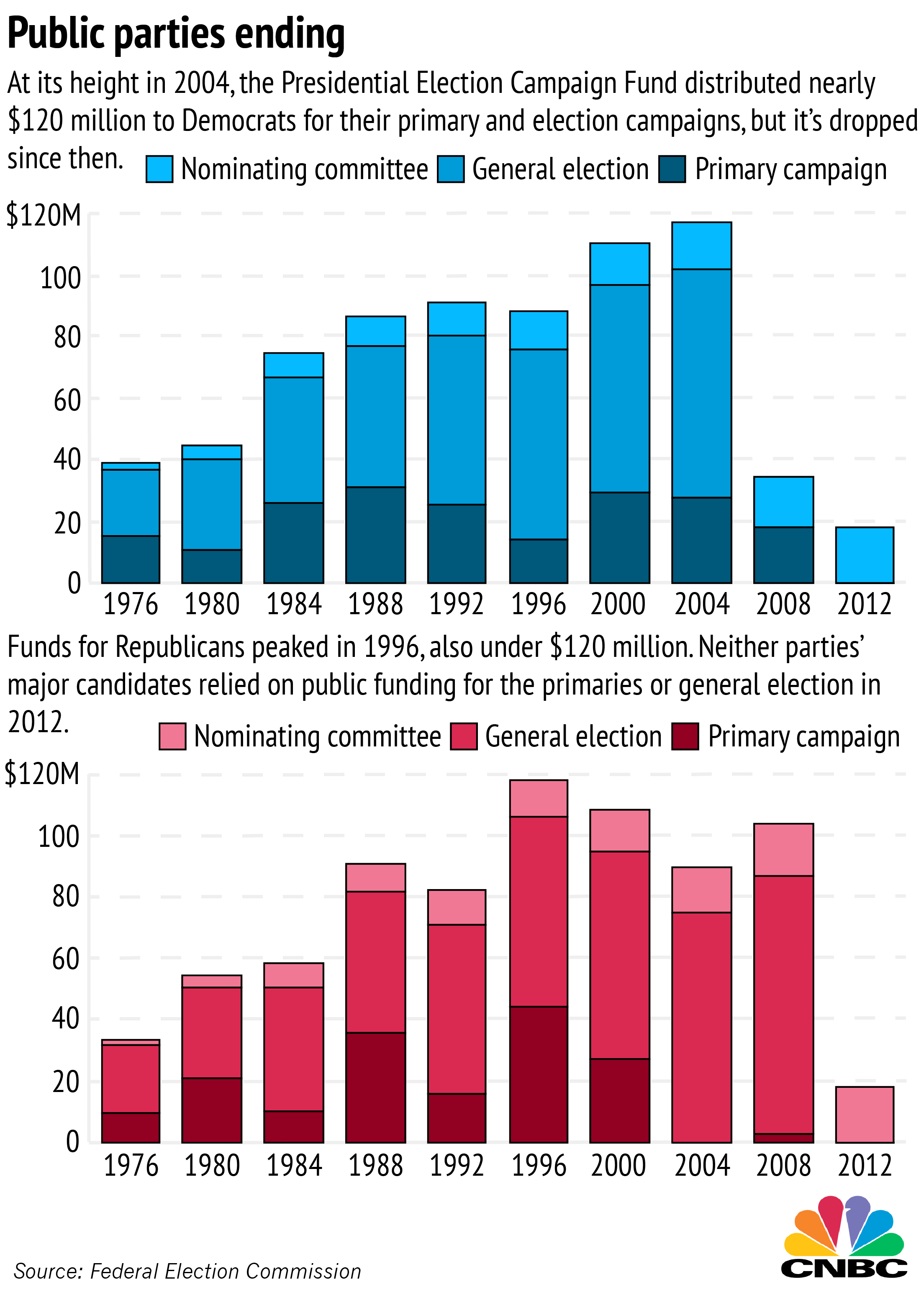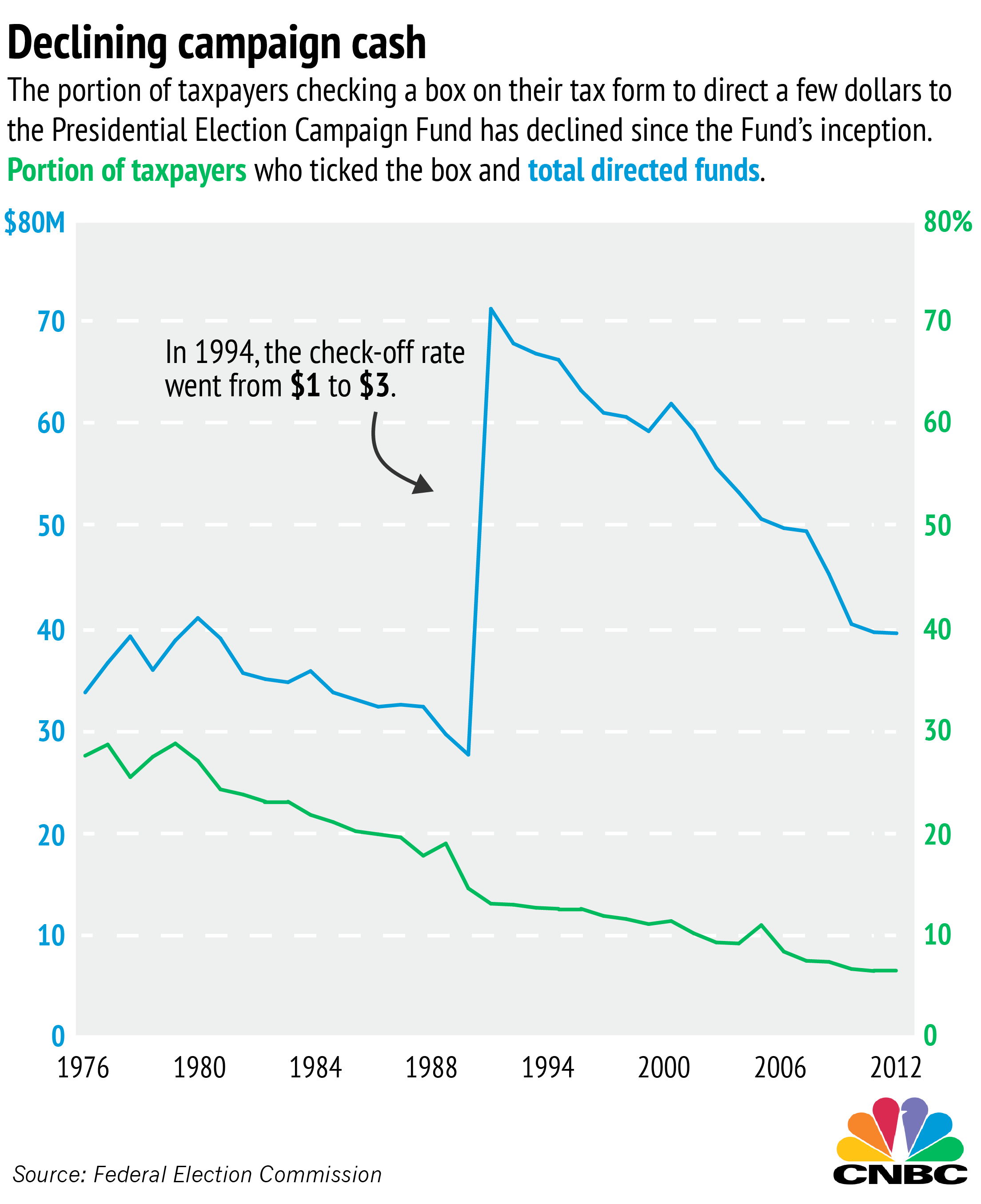The Presidential Election Campaign Fund was set up following the Watergate scandal with the intention of creating an attractive public-financing system. In applying to be part of the program, presidential candidates receive matching funds for donations up to $250 for the primary campaign and a set amount for the general. A separate portion of the fund was paid to political committees to help pay for nominating conventions.
Read MoreTime to crack down on 'dark money' -- Commentary
By ticking the box on page one of the IRS form 1040, a taxpayer elected to send $1 from the IRS to the fund, or $2 for couples filing jointly. (In 1994, the check-off rates were increased to $3 and $6, respectively.)
One of the big misconceptions, it seems, is that ticking the box will affect your tax return or how your taxes are processed. It's not like when the grocery-store cashier asks if you want to donate a dollar to some charity. Rather, it directs the money from the IRS to the FEC to be used by the fund.
Presidential aspirants for decades used the fund, with all major candidates opting into the program.
Public participation started strong, with nearly 30 percent of taxpayers ticking the "yes" box in 1976. Since then, the portion of declined steadily and only 6 percent did so in 2013, the most recent year available from the FEC.






